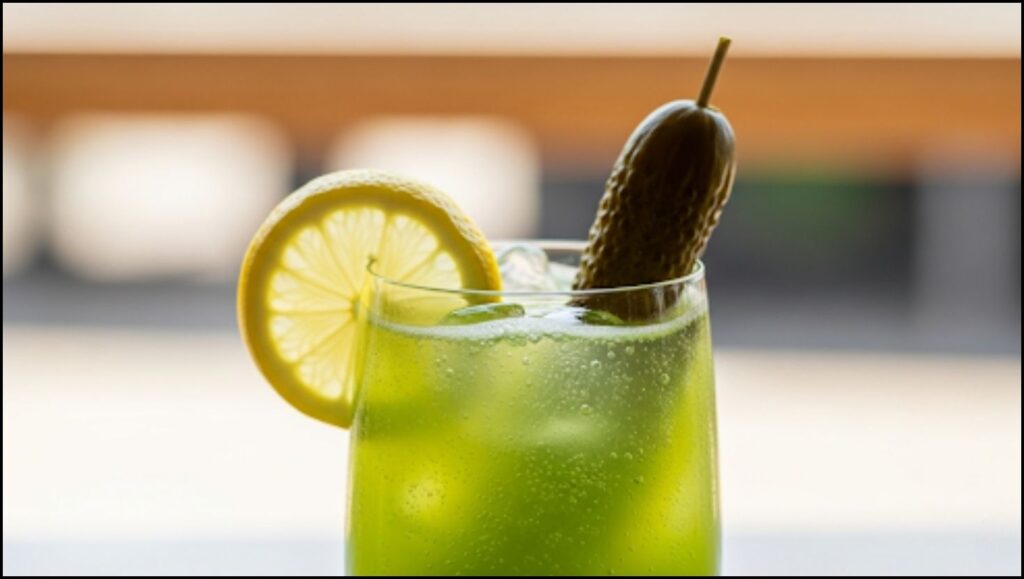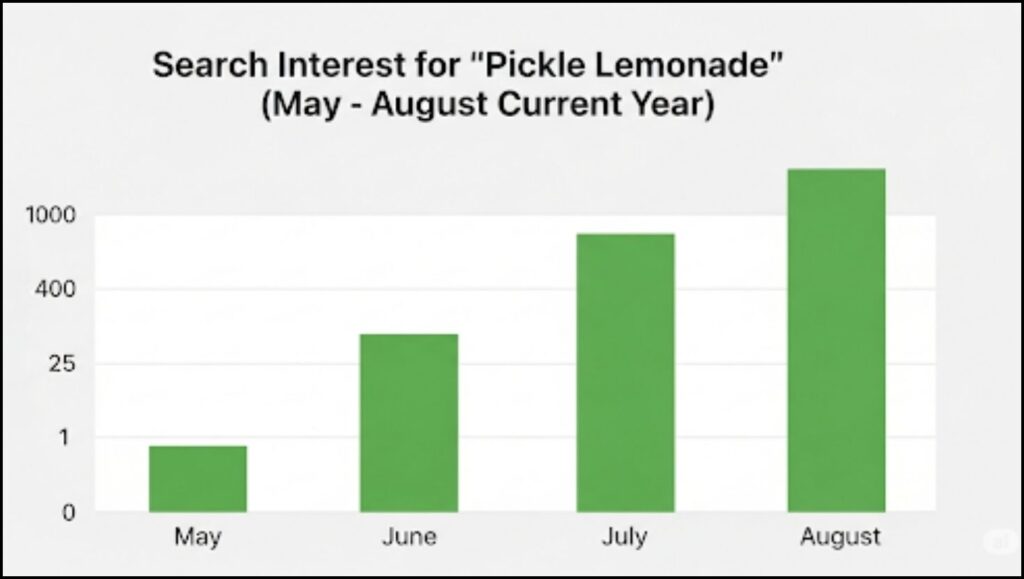
An unconventional beverage combining the sweet-tart taste of lemonade with the salty, briny flavor of pickle juice has emerged as a major culinary trend this summer. Dubbed pickle lemonade, the drink has gained a following on social media platforms like TikTok, sparked new menu items at restaurants, and ignited a global conversation about flavor combinations. The viral popularity of this beverage has drawn commentary from food critics, health professionals, and culinary editors, who offer a range of perspectives on its taste and nutritional profile.
The Origins of a Summer Sensation
The concept of mixing pickle brine into drinks is not entirely new. Bartenders have long used pickle juice in “pickleback” shots, a whiskey chaser that balances the spirit’s flavor with a salty, acidic finish. Athletes have also consumed pickle juice for decades to help prevent muscle cramps and replenish electrolytes lost during intense workouts, a practice supported by some scientific studies. However, the recent surge in popularity for pickle lemonade is largely attributed to its widespread appearance on social media and its adoption by fast-food chains.
The drink gained significant traction after a major U.S. fried chicken chain, Popeyes, introduced a version to its menu. The company’s test kitchen, faced with leftover barrel-aged pickle brine from its famous chicken sandwiches, began experimenting, resulting in a drink that surprised many with its refreshing, tangy profile. This commercial launch catalyzed the drink’s viral spread, with home cooks and content creators sharing their own recipes and taste tests online.

Culinary Critics Offer a Mixed Verdict
The reception from culinary experts has been divided. Editors at major publications have conducted taste tests, with their feedback ranging from enthusiastic endorsement to polite skepticism. According to a report by Better Homes & Gardens, associate editor Bryce Jones described a version of the drink as “weird in a good way,” noting that it offered a unique, savory complexity that was not overly tart. Other testers from the publication were more cautious, with senior creative producer Juliet Muir likening it to “a Bloody Mary adjacent without the tomato” and stating that while it was not “bad per se,” it did not fully satisfy her craving for either a traditional lemonade or a bold, briny cocktail.
These varied reactions highlight the drink’s polarizing nature. For many, the combination of sweet, sour, and salty flavors creates a surprising and refreshing balance. For others, the briny, fermented taste of pickle juice clashes with the citrusy notes of lemonade, creating a flavor profile that is challenging to the palate. The specific type of pickle brine used—dill, bread and butter, or spicy—can also significantly alter the drink’s final taste, contributing to the wide range of opinions.
The Health and Hydration Debate
Beyond its taste, pickle lemonade has also been evaluated for its potential health benefits, particularly in the context of a hydrating summer drink. The primary health claim associated with the beverage stems from the properties of pickle brine itself. The liquid is rich in sodium and often contains other electrolytes like potassium and magnesium, which are crucial for rehydration and muscle function.
“Pickle juice contains electrolytes in the form of a lot of sodium, as well as potassium and magnesium—in higher amounts than a typical sports drink,” said M. Czerwony, RD, a registered dietitian at the Cleveland Clinic. “It can help to rehydrate you after an intense workout.”
However, Czerwony also noted that while the high sodium content can be beneficial for athletes in specific circumstances, most people already consume more than enough sodium in their daily diets. For individuals with conditions like hypertension or kidney disease, the high salt content in pickle juice could be a health concern. The added sugar in many lemonade recipes is also a factor to consider, as it can negate some of the potential benefits and contribute to elevated blood sugar levels.
Additionally, some pickles are made through natural fermentation, which can introduce probiotics beneficial for gut health. However, as noted by dietitian Kaytee Hadley, RDN, many commercially available pickles are pickled in vinegar, a process that kills beneficial bacteria. “To find a fermented pickle, visit the refrigerated section of the grocery store,” Hadley advised, suggesting that the probiotic benefits are not guaranteed in all versions of the beverage.
A Global Context for Salty-Sweet Drinks
The viral success of pickle lemonade can be seen as part of a broader, global culinary tradition of combining salty and sweet flavors in drinks for refreshment. In Vietnam, nuoc chanh muoi is a popular beverage made from preserved lemons that creates a salty, sweet, and sour flavor profile. In India, nimbu pani often includes a pinch of salt and sometimes cumin, adding a savory dimension to the lemon drink. These drinks are prized for their ability to quench thirst and replenish electrolytes, especially in hot climates.
The rise of pickle lemonade in the U.S. and other Western countries demonstrates an increasing openness to complex, unconventional flavor combinations. This trend is driven in part by a generation of consumers who are more adventurous in their food choices and who are influenced by digital platforms that showcase unique culinary creations.
The Future of a Flavor Fad
Whether pickle lemonade will remain a seasonal curiosity or become a lasting fixture on beverage menus is yet to be determined. The drink’s appeal lies in its novelty and its bold flavor, but its polarizing taste may limit its long-term widespread adoption. Its continued presence in the public consciousness will likely depend on whether it can evolve beyond a viral trend and find a sustained place in mainstream consumer preferences. As summer continues, the debate over this brine-infused beverage is a testament to the power of social media to turn an unlikely ingredient combination into a global phenomenon.
New Research Highlights the Surprising Health Benefits of Prunes for Bone and Heart Health
